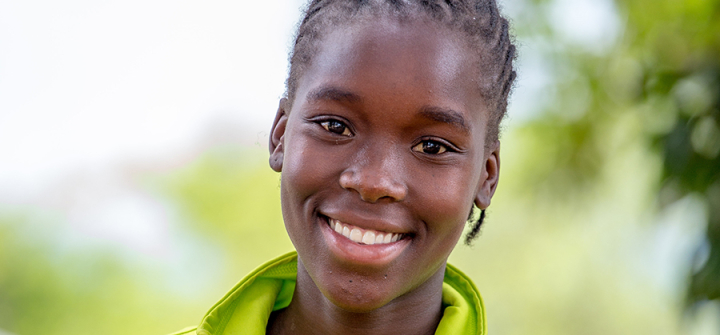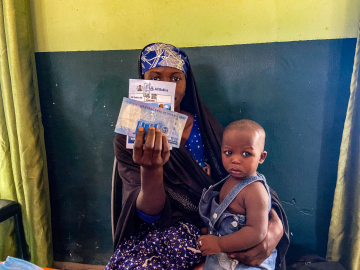Global Health NOW’s Local Reporting Initiative: Storytelling at the Source
Sharing underreported global health stories has always been a top priority for Global Health NOW—and now our Local Reporting Initiative gives us the ideal platform. With generous support from GHN readers, we’re building up a network of journalists around the world to tell global health stories with a local’s keen eye—reporting on stories overlooked and undercovered by the mainstream media, straight from the countries affected, while supporting international journalists.
We’re pleased to share these exclusive stories under the initiative.
Pakistan’s Trans Community Is Especially Vulnerable to Climate Crises – By Adeel Saeed, October 1, 2024
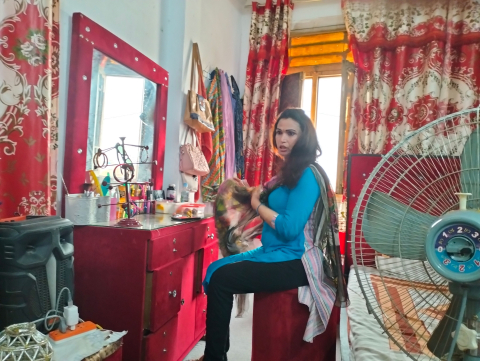
Climate extremes including heat waves and floods affect almost everyone in Pakistan, but people who are transgender suffer disproportionately because of stigma that often leads to family estrangement and limited education, work, and housing options—pushing them to the margins of society.
Early Warning Systems Vital for Climate Risk Preparedness in Kenya – By Scovian Lillian, September 16, 2024
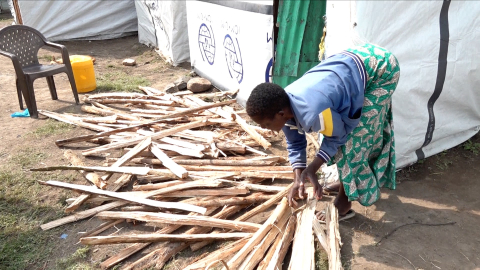
Could a stronger early warning system—one that integrates environmental factors into disease surveillance systems—have saved lives after last spring’s floods in Kenya?
‘Heat Poverty’: A Growing Threat in India – By Cheena Kapoor, July 16, 2024
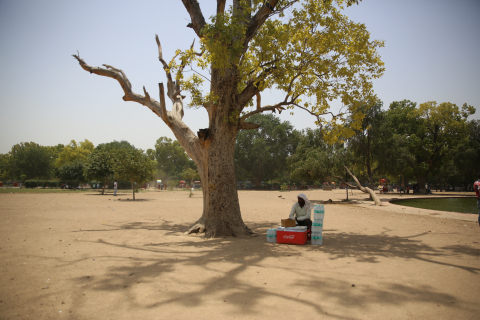
Increasingly extreme heatwaves are forcing India’s most impoverished people into heat poverty as they borrow large sums to buy air conditioners for their homes—and the need for air conditioners is only increasing in Delhi, a metro area of about 33 million people, because of the "urban heat island" effect.
Silent Killer: Saltwater Threatens Women’s Health in Coastal Bangladesh – By Rafiqul Islam Montu, May 29, 2024

Climate change-driven saltwater intrusion into rivers and aquifers brings multiple health risks to the women of southwestern Bangladesh, including many who survive by catching shrimp, which requires standing for long days in the saltwater—putting them at special risk of skin infections and reproductive disorders .
Amsterdam’s Struggle to Improve Sex Worker Health – By Gabriela Galvin, May 8, 2024

A web of immigration and labor policies, logistical hurdles, and social stigma mean some sex workers are unable to access the health care system. Sex workers who don’t have the right work permit and those under 18 (21 in Amsterdam) all work illegally and may experience worse working conditions, greater risk of exploitation, and have difficulty accessing health care.
The Push to Get Kenyan Cult Leaders to Embrace Modern Medicine – By Dominic Kirui, April 30, 2024

The influence of religious leaders like Eliud Wekesa—who claims to be Jesus and tells followers that only prayers can heal them—is one reason many NTDs persist in LMIC countries, but that is starting to change.
A South African Soup Kitchen Is Bringing Relief to Caregivers - By Marcia Zali, April 18, 2024
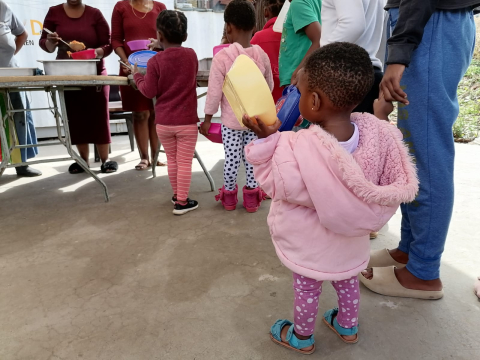
In a white shipping container converted into a community soup kitchen, Vusi Msomi provides meals for children in need in Alexandra, South Africa. It helps, but it’s not enough to address community hunger—which worsened after the pandemic started.
Is Climate Change Making Menopause Symptoms More Severe in India? – By Sanket Jain, February 16, 2024
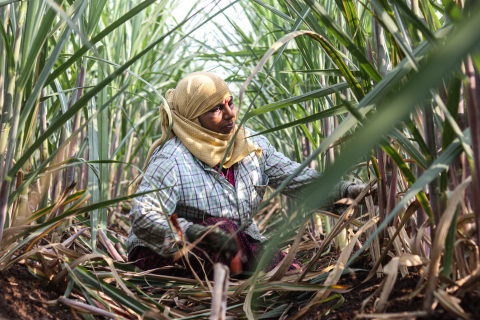
Indian farmworkers going through menopause may be experiencing more severe hot flashes, night sweats, and other symptoms due to extreme temperatures related to climate change—but there is little attention to their plight. “No one is interested in how menopause affects a woman,” says Sunita Nikam. “I was relieved only after my menopause ended.”
PTSD: A Legacy of Manipur’s Enduring Conflict – By Cheena Kapoor, January 3, 2024
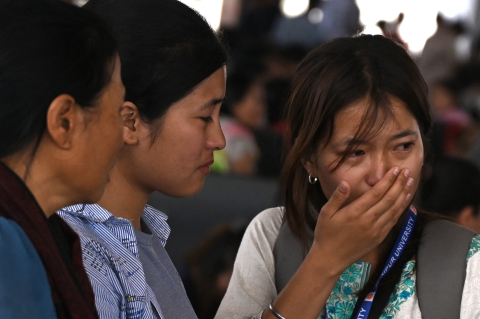
Thirty-year-old Bonny Hatkhanhoih has been suffering from severe bouts of depression and PTSD since she was shot in the chest on the evening of May 5, 2023, during ethnic violence in the northeast Indian state of Manipur. Her three bone fractures and the punctured lungs, liver, and kidney are healing, but the mental trauma has affected her the most.
Millions of India’s Women Brick Kiln Workers Find Health Care Elusive – By Shreya Raman, January 10, 2024
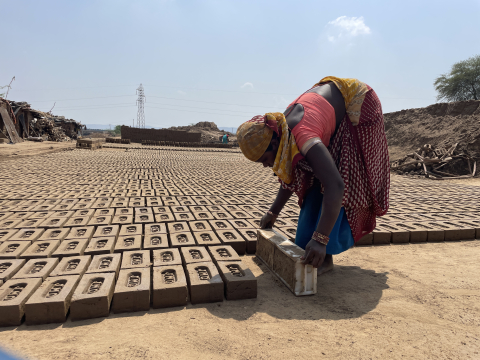
Women kiln workers, who comprise as much as half of the India’s 10 to 23 million kiln workers, are often reluctant to seek medical care because stopping work means they won’t get paid. That's why Nirmala returned to work 15 days after giving birth by cesarean section—far short of the six weeks of recommended rest.
Extreme Weather Makes a Hard Job Harder for India’s Health Workers – By Sanket Jain, October 20, 2023
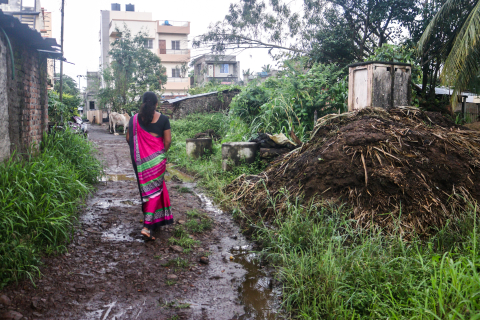
Everything changed for health worker Shubhangi Kamble in August 2019 when floodwaters inundated her village. Infants fell ill with diarrhea or pneumonia, and her workload soared. The flood was followed by heat waves, incessant rainfall, hailstorms, and another flood. Each affected children’s health.
Climate Change Drives Anxiety, Depression in the Sundarbans – By Ritwika Mitra, July 28, 2023
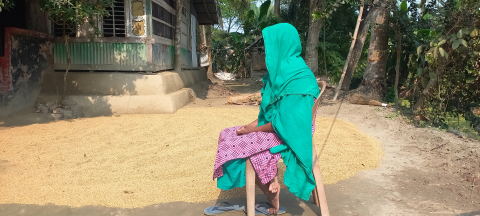
In Teligati village along the coastal belt of the Sundarbans, 32-year-old Parveen Akhtar spends most of her time cooped up in her house—a fragile structure weary from the frequent landfall of cyclones. When cyclone warnings sound in her village, Akhtar routinely refuses to move to a shelter. “Whatever will happen will happen when a flood or cyclone hits my wooden house,” says Akhtar.
Can Natural Farming Improve Farmers’ Health? – By Mahima Jain, June 21, 2022
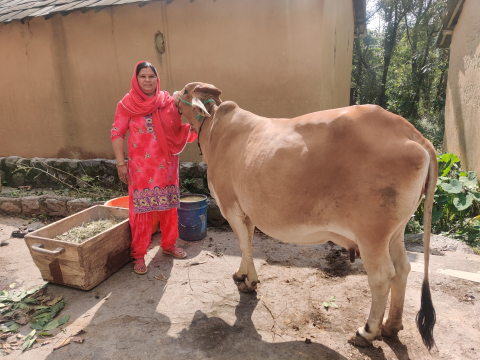
In recent years, India’s media have racked up stories about the costs of pesticide use in India including deaths, skin ailments, and high cancer rates. But a small, growing number of Indian farmers are adopting natural cultivation methods in response—preparing homemade chemical-free fertilizers using cow dung, mulch, and herbs to be sprayed on the fields, and adopting ecologically sensitive cultivation approaches.
In Kashmir, Coronavirus Pushed Already-Broken Maternal Health over the Brink – By Aliya Bashir, June 14, 2022
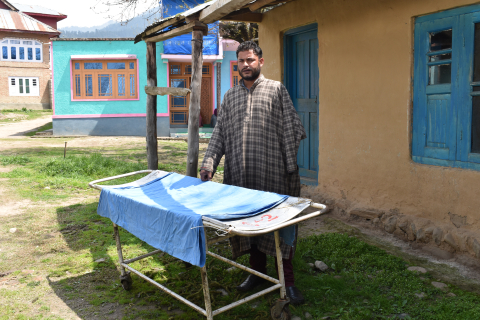
COVID-19’s rise in 2020 flooded general medical facilities in Kashmir with patients—and overwhelmed the already-eroding maternal health system there. Many doctors didn’t want to risk caring for pregnant women who might be COVID-19 positive—decisions ultimately met with tragic results.
In Kashmir, Pregnant Women Were Denied Care over COVID-19 Fears – By Aliya Bashir, June 16, 2022
Kashmir’s health system, battered by conflict and neglect, was ill-equipped to provide maternal health care during the height of the pandemic. But it wasn’t just the pandemic-fueled strain on the health system or lockdowns that obstructed care; private hospitals mostly denied treatment to pregnant women.
As Heat Kills in India, Action Plans Save Lives – By Swagata Yadavar, June 3, 2022
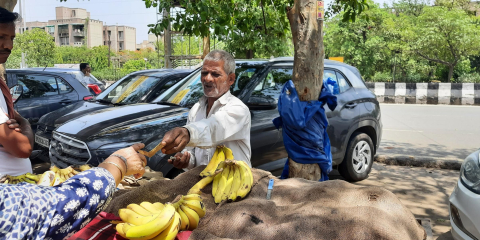
March and April were India’s hottest months in 122 years of recorded history. The result has been fires in forests as well as landfills, a 10%–35% decline in crop yields, and power and water shortages due to higher demand. Early reports recorded 90 deaths, though that’s believed to be a vast undercount. More than 120 Indian cities have developed “heat action plans"—yet more needs to be done, says Abhiyant Tiwari, MPH, a heat health expert and member of member of Global Heat Health Information Network.
Parties, Symptoms, Mysteries: An Early Monkeypox Patient in Portugal – By Marcia Triunfol, June 1, 2022
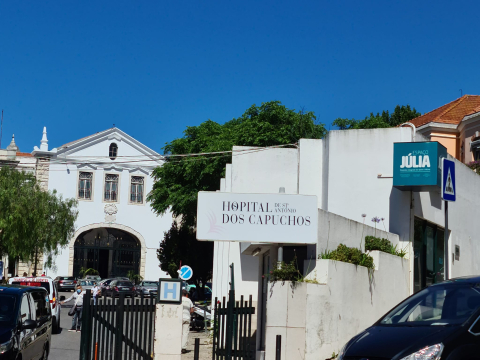
On a warm spring morning in early May, a young man entered the Health Center outside Portugal’s capital city.
S., a 25-year-old Brazilian national who’s been living in Portugal for 3 years and working as a model, had been feeling sick for few weeks before he finally decided to look for help.
Then, pustules erupted all over his body. S. does not know how and when he got monkeypox, but he may be one of the first cases of the outbreak in Portugal.
Marcia Triunfol, PhD, is a Lisbon-based science writer and editor.
Why Leprosy Persists in India – By Kamala Thiagarajan, May 26, 2022
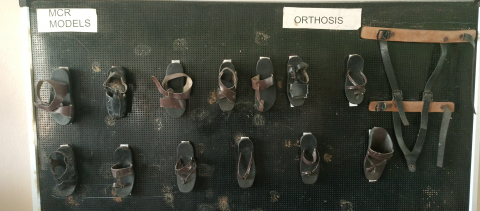
Despite running one of the largest leprosy elimination programs in the world, India can’t seem to shake the scourge, reporting 100,000+ new cases in 2019—more than half of the global total. Why? On the cusp of victory, it shifted attention and resources elsewhere—a familiar tale in global public health.
Kamala Thiagarajan is a freelance journalist based in Madurai, Southern India.
How COVID-19 Set Back India’s Battle with Leprosy - By Kamala Thiagarajan, May 26, 2022
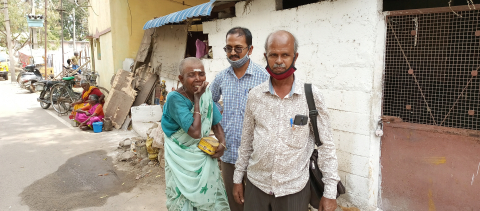
In the years after Karupayee, 67, was treated and her leprosy was cured, she depended on M. Raja and his team from the Madurai Health and Leprosy Relief Centre (Mahelerecen). They helped her find work, arranged for her to receive meals from nearby shelters, and made sure that she took her medicine. Then the pandemic hit. Lockdowns followed, making it impossible for Raja and his team to check on Karupayee and other patients they’d been serving for years.
Kamala Thiagarajan is a freelance journalist based in Madurai, Southern India.
The World Health Assembly: What It Does, Why It Matters – By Priti Patnaik, May 16, 2022
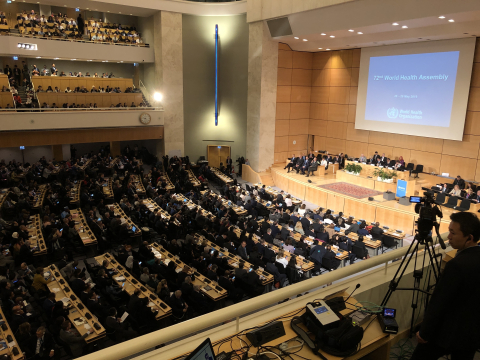
Each May, representatives from the 194 member states of the WHO gather in Geneva to discuss, argue, haggle, and sign off on the agency’s priorities and policies. The high-stakes gathering is called the World Health Assembly, and it’s the premier decision-making body of the WHO. Read this primer to learn what happens at the WHA, why it’s important, and who the players are.
Priti Patnaik is the founding editor of Geneva Health Files, a weekly investigative newsletter that tracks power and politics in global health. She is based in Geneva.
As Population Climbs, Hygiene Suffers in Slums – By Dominic Kirui, March 23, 2022

Mary Ndira, who has a raw sewage drain running through her doorstep, knows that the water in her crowded village isn’t safe. But in Kenya’s Kibera slum, government water and sanitation services can’t keep up with the surging population–-leaving residents like Ndira little choice but to drink water they know is making their families sick.
Dominic Kirui, a freelance journalist based in Nairobi, Kenya, writes on gender, climate change, access to clean water, food security, culture, conflict, politics, and global development. See his portfolio here https://muckrack.com/dominic-kirui and Twitter: @Domie_Kirui.
In Zimbabwe, COVID-19 Vaccine Mistrust Stokes HPV Vaccination Fears – By Farai Mutsaka, March 24, 2022
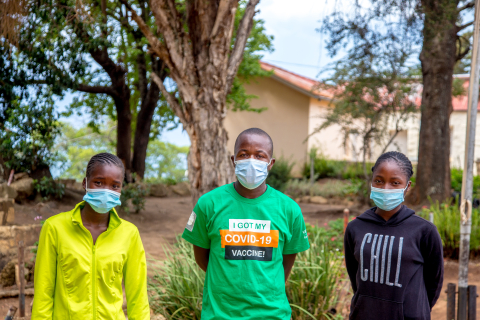
As Zimbabwe gradually returns to the normal school calendar, health authorities are looking to scale up HPV vaccination again. But they face a new challenge: creeping mistrust in vaccines caused by misinformation spread on social media. Esther Sambiri, 16, a volunteer health communicator in the eastern district of Nyanga, has made it her mission to dispel such rumors. While her peers spend their free time hanging out with friends, she’s going door-to-door talking about HPV vaccination.
Farai Mutsaka is a Harare, Zimbabwe-based journalist.
Strapped for Time and Resources: Fighting Stroke in Rural South Africa – By Elsabé Brits, February 3, 2022
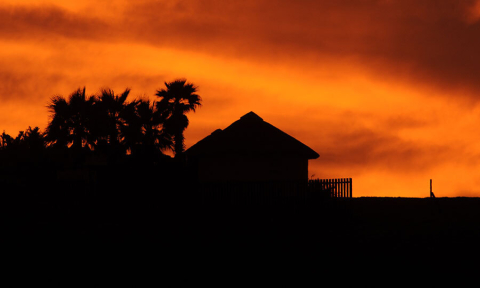
With a stroke, minutes can mean the difference between death and life—and the odds are stacked against survival for many people who live in rural South Africa, where ambulances, stroke specialists, diagnostic tools, and treatments are all scarce.
Elsabé Brits is a freelance science writer from South Africa.
How You Can Contribute
Interested in supporting GHN’s Local Reporting Initiative? Please visit here.
If you’re a journalist based outside the US and you’d like to be considered for this project—or you know a great journalist or an intriguing story idea we should consider, let us know!
Join the 50,000+ subscribers in 170+ countries who rely on the Global Health NOW newsletter and exclusive articles for the latest public health news. Sign up for our free weekday newsletter, and please share the link with friends and colleagues.
Esther Sambiri, 16, a volunteer health communicator, advocates for the HPV vaccine in the eastern district of Nyanga, Zimbabwe. Dec. 16, 2021. Image: Farai Mutsaka

